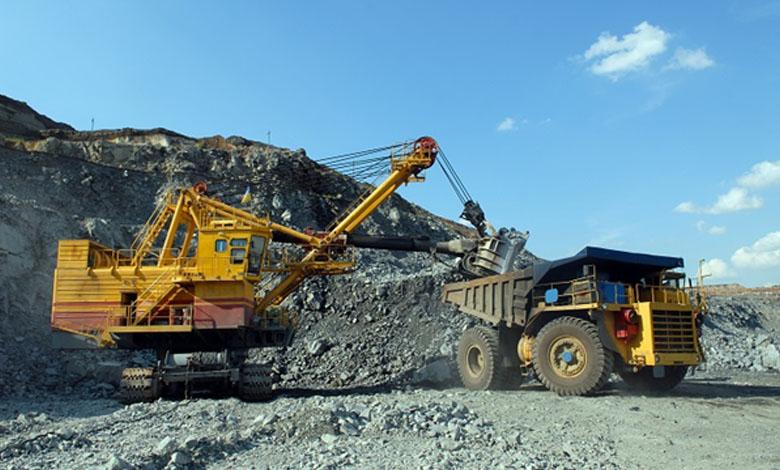First Investor Right: The US is closing Europe’s door to the Ukrainian economy

The US seeks to control all key infrastructure and resource investments in Ukraine, which could give it veto power over the participation of Kyiv’s other allies and jeopardize Ukraine’s entry into the European Union.
Donald Trump’s administration, according to the draft agreement received Bloomberg News, demands to give the USA the “right of first offer” (right of first offer) for investments in all projects related to infrastructure and natural resources in Ukraine.
If this agreement is signed, the United States will gain enormous leverage over investments in Ukraine — including roads, railways, ports, mines, oil and gas, and the extraction of critical minerals. This will be an unprecedented expansion of US economic influence in Europe’s largest country — just as Ukraine is trying to move closer to the European Union and rebuild after a full-scale Russian invasion.
Such intentions are already causing serious concern among Ukrainian and European officials. Granting the US priority rights in such broad areas can undermine Ukraine’s European integration aspirations, because the EU is unlikely to be tolerant of a candidate state handing over strategic control to a state that is not a member of the European Union. A negative consequence of such an agreement could be a weakening of the West’s unity in supporting Ukraine, if European countries feel that the USA is pushing them away from the process of recovery and development of Ukraine. In addition, the priority of US rights to Ukrainian resources may create a new form of external governance, no longer from the IMF or the World Bank, but directly from Washington.
This issue will obviously become the subject of heated discussions between Kyiv, Washington and Brussels in the coming months.
The right of first offer: a tool of economic control?
According to the project of a new agreement between the US and Ukraine, proposed by the administration of Donald Trump, the United States requires the establishment of the so-called “right of the first offer” (right of first offer) in all future investment projects related to Ukrainian infrastructure, natural resources, energy and critical minerals.
In practice, this means that before Ukraine can discuss any investment initiative with other states or private partners, it will first have to propose it to the United States. If the USA does not express interest or refuses, only then will Kyiv be able to attract other investors.
Such a mechanism is an indirect but effective tool of economic control. It does not prohibit cooperation with other countries directly, but it makes it much more difficult. In fact, the US gets exclusive access to strategic information, as well as an advantage in negotiations, which reduces the competitiveness of other potential partners – in particular, EU countries. Can the “right of the first offer” be equated with the “veto right”?
Formally, no, because “veto power” would mean the ability to completely prohibit or block the participation of third parties, even if the United States itself is not interested in participating. But in essence – yes, at least partially. If the right of the first offer is applied to all major projects, and also includes detailed information of the American side about the content of the initiatives, then this gives Washington an indirect opportunity to influence the choice of partners; creates a risk of discrimination against other allies of Ukraine, in particular European, Japanese or South Korean companies; may contradict the policy of good neighborliness and the criteria of economic sovereignty, which the European Union requires from the candidate countries for accession.
Thus, in the conditions of post-war reconstruction of Ukraine and the desire for European integration, such a position can be considered as a form of neo-colonial pressure, where under the guise of “partnership” an asymmetric dependence is actually created.
In which countries do similar forms of economic influence apply?
First of all, let’s mention Chinese investments in Africa and Southeast Asia, because China actively invests in infrastructure projects, energy and mining in these regions. Although specific mechanisms such as the “right of first offer” are not always publicly disclosed, it is known that Chinese investment are often accompanied conditions that provide priority access to resources or markets. For example, in Southeast Asia, China is a major investor in Myanmar, and it has also increased foreign direct investment in Singapore.
As an example, you can also cite the Comprehensive Regional Economic Partnership (CREP). The agreement between the ASEAN countries and their partners is aimed at creating a free trade area and deepening economic integration. Although VREP does not provide for the “right of first offer” mechanism, it does establishes priorities and rules for economic cooperation between participants.
It is also worth mentioning the state regulation of investments. Many countries in Africa and Southeast Asia have legal restrictions and requirements on foreign investment, which may include giving priority to domestic companies or establishing special conditions for foreign investors. These mechanisms are aimed at protecting national interests and promoting the development of the local economy.
US Motivation: Compensation or Strategic Reset?
Speaking at the White House on Thursday, Trump reported, that the USA plans to sign agreements on rare earth metals and minerals all over the world, but the USA will pay special attention to Ukraine in this context.
“We are doing well in relations with Ukraine and Russia, and one of our tasks is to sign an agreement with Ukraine on rare earth metals in the near future.“, he said, without revealing details.
Against the background of the Trump administration’s claims that the US is entitled to “compensation” for aid to Ukraine, the proposed right of first offer appears not only as an economic mechanism, but also as a tool of political pressure. Especially in view of the parallel efforts of the American president to force Kyiv and Moscow to agree to a peace agreement, which would involve significant territorial concessions on the part of Ukraine, without demands on Russia.
In this context, the “right of first offer” ceases to be a formal investment tool and takes on the features of a geopolitical lever – with the help of which the US can partially compensate for the lack of active participation in the EU negotiations on post-war reconstruction, but at the same time claim control over the most promising assets of Ukraine.
Gold promotion for the United States
According to the draft agreement, the US, through its International Development Finance Corporation (DFC), will control the investment fund, nominating three of the five members of the board of directors. In addition, the US will have a so-called “golden share”, which gives it special rights to block certain fund decisions. Ukraine will be able to appoint only two members of the board of directors, while it will be deprived of the opportunity to interfere in the day-to-day management of the fund.
This means that the United States will have significant control over how the funds invested in infrastructure projects in Ukraine will be used, as well as over what decisions can be made regarding the direction of these investments. A “golden share” is a mechanism that allows the owner of this share to have special rights, including the right to block or veto certain important decisions, even if other shareholders or participants do not agree. Such a system actually gives the US control over many strategic aspects of Ukrainian projects, despite the fact that part of the management will remain in the hands of Ukraine.
According to the draft agreement, the government of Ukraine will be obliged to transfer 50% of the profits from all new projects related to natural resources and infrastructure to a special fund. At the same time, the United States will receive all the profits from these projects, plus an annual return of 4%, until their investment is fully repaid. At the same time, the document does not specify exactly how the profit will be distributed after the investment is compensated in full.
This creates a legal “gray zone” that can be critical for Ukraine. Unless there are additional arrangements or clearly spelled out mechanisms in accompanying agreements, the question of control over resources and profits will remain open. This, in turn, allows the American side to retain influence or advantages even after the return of the invested funds.
Ukraine will also have to submit all new projects for consideration by the fund as early as possible. The American Finance Corporation (DFC) will receive seats on the supervisory boards or have control over all programs funded through the fund. If the fund refuses to finance a project, Kyiv will be prohibited from offering it to other investors on more favorable terms for a year.
In addition, the project provides that the US government will have the priority right to purchase Ukrainian metals, minerals, oil and gas on commercial terms – even if the project is not financed through the fund.
A separate clause of the agreement prohibits Ukraine from selling critical minerals to countries that are “strategic competitors” of the United States. The agreement has no validity period.
The war continues, but negotiations are already underway not only about weapons, but also about investments, control over resources and access to key sectors of the Ukrainian economy. A new architecture of post-war reconstruction is being formed – with long-term commitments, exclusive rights and special conditions for individual partners. The focus is not only on financial assistance, but also on mechanisms of influence: the right of first offer, the “golden share”, control over funds and decisions. All this turns economic support into a means of strategic management. In the conditions of the desire for European integration and the struggle for the preservation of sovereignty, Ukraine is forced to find a balance between the need to attract resources and the risk of finding itself in a new system of dependencies – now not only from the East, but also from the West.





